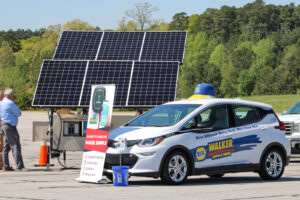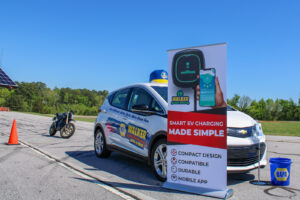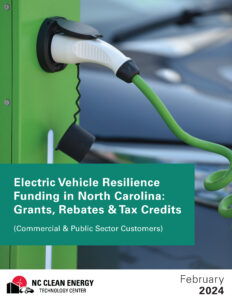 The North Carolina Clean Energy Technology Center (NCCETC) has unveiled a vital new resource titled, “Electric Vehicle Resilience Funding in North Carolina: Grants, Rebates, and Tax Credits,” offering a lifeline to both commercial and public sector entities delving into electric vehicle (EV) adoption and infrastructure development.
The North Carolina Clean Energy Technology Center (NCCETC) has unveiled a vital new resource titled, “Electric Vehicle Resilience Funding in North Carolina: Grants, Rebates, and Tax Credits,” offering a lifeline to both commercial and public sector entities delving into electric vehicle (EV) adoption and infrastructure development.
This comprehensive guide aims to demystify the array of incentives available for EV purchases and charging station installations statewide. From federal grants to utility-funded initiatives, the document outlines numerous financial avenues for those eager to embrace sustainable transportation solutions.
Empowering Electric Vehicle Resilience
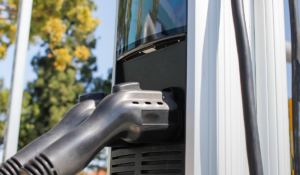 In the dynamic landscape of sustainable transportation, the rise of EVs represents a shift towards cleaner, more efficient modes of travel. As the United States pursues steps to decarbonize the transportation sector, the importance of bolstering the resilience and reliability of support infrastructure has become increasingly apparent.
In the dynamic landscape of sustainable transportation, the rise of EVs represents a shift towards cleaner, more efficient modes of travel. As the United States pursues steps to decarbonize the transportation sector, the importance of bolstering the resilience and reliability of support infrastructure has become increasingly apparent.
In an era marked by the escalating impact of natural disasters, the vulnerability of electric vehicle (EV) charging infrastructure stands out as a pressing concern. With hurricanes, floods, wildfires, and other calamities increasing in frequency and intensity, safeguarding the resilience of our transportation systems becomes paramount. No longer is it solely about embracing cleaner modes of travel; it’s about ensuring the viability of these alternatives even in the face of calamity.
Fortunately, legislators on federal, state, and local levels have recognized the critical importance of incentivizing EV adoption and infrastructure development. Through the enactment of various direct financial incentives, they aim to provide market certainty and facilitate the accelerated deployment of clean transportation technologies. These initiatives not only drive innovation but also contribute to reducing greenhouse gas emissions and forging a more sustainable future for generations to come.
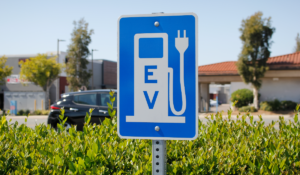 Strategic utilization of available funding holds the key to establishing a robust and accessible EV charging network throughout North Carolina. By strategically locating charging stations, we can ensure convenience and reliability, encouraging individuals to embrace sustainable transportation options in their daily lives. This not only enhances accessibility but also promotes inclusivity, making EVs a viable choice for all members of the community.
Strategic utilization of available funding holds the key to establishing a robust and accessible EV charging network throughout North Carolina. By strategically locating charging stations, we can ensure convenience and reliability, encouraging individuals to embrace sustainable transportation options in their daily lives. This not only enhances accessibility but also promotes inclusivity, making EVs a viable choice for all members of the community.
NCCETC recently partnered with the Upper Coastal Plains Council of Governments to spearhead initiatives aimed at enhancing the resiliency of EV infrastructure in the Upper Coastal Plains region of North Carolina. A key component of this initiative was the introduction of a webinar series designed to disseminate crucial information on electric vehicle infrastructure resilience, particularly in the face of natural disasters. Tailored specifically to the dynamics of Eastern North Carolina, these webinars served as an invaluable resource for the region, equipping stakeholders with the knowledge and tools necessary to navigate the challenges posed by adverse weather conditions.
By harnessing the power of financial incentives and funding, we can accelerate the transition towards a more sustainable and resilient transportation ecosystem in North Carolina and beyond.

